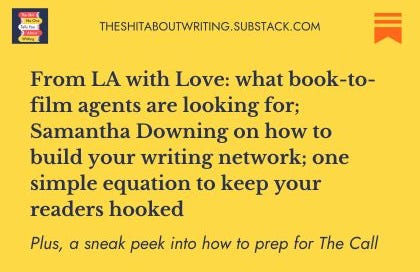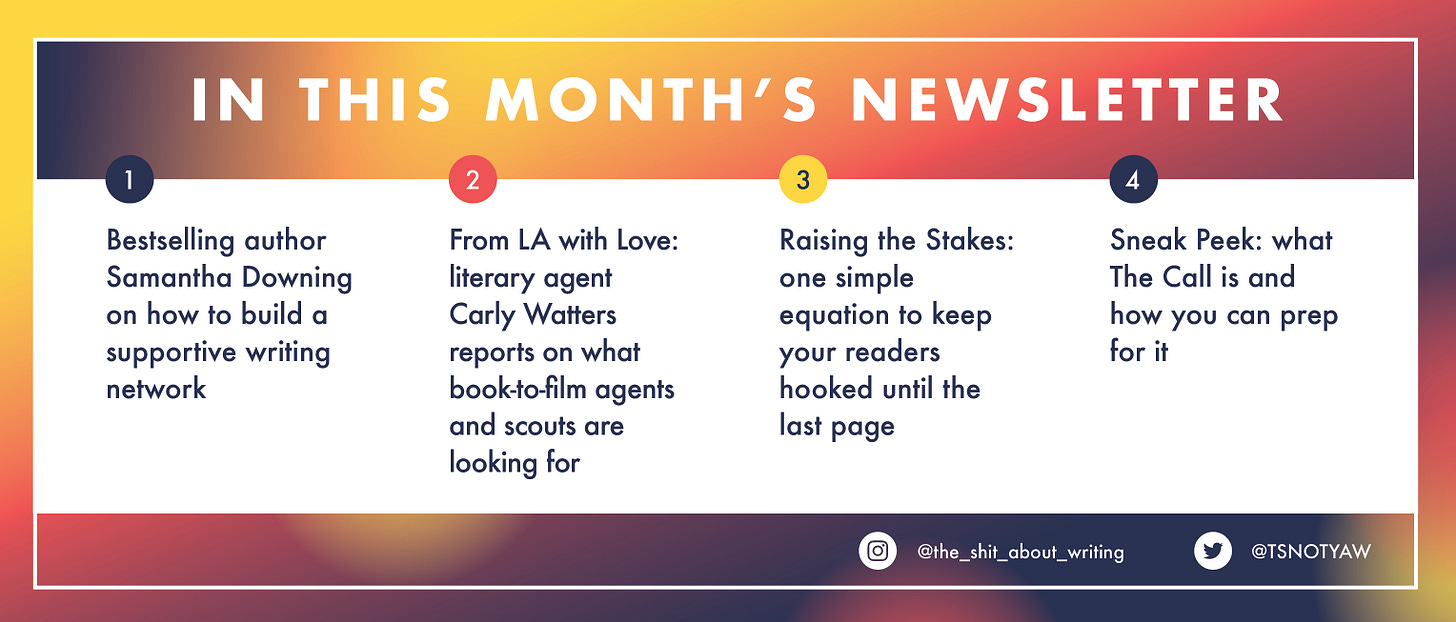✨ From LA with Love: what book-to-film agents are looking for; Samantha Downing on how to build your writing network; one simple equation to keep your readers hooked ✨
✨ Plus, a sneak peek into how you can prep for The Call ✨
Hello friend and welcome to another issue of ✨The Shit No One Tells You About Writing’s newsletter!✨ Up here, summer is drawing to a close and there’s definitely a back-to-school feeling in the air. Are you returning to your manuscript after a summer break or have you been hard at it through the sunny months? Perhaps you’re starting a new project or pol…
Keep reading with a 7-day free trial
Subscribe to The Shit No One Tells You About Writing to keep reading this post and get 7 days of free access to the full post archives.




